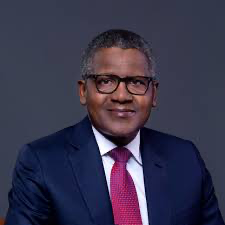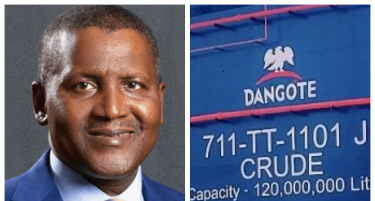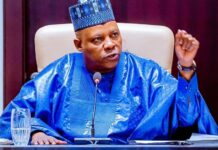Aliko Dangote, the Chairman of the Dangote Group, recently made startling allegations against what he termed the “oil mafia” during his speech at the Afreximbank annual meetings (AAN) and the AfriCaribbean Trade and Investment Forum in Nassau, The Bahamas. Dangote revealed that powerful groups, both local and international, had made several attempts to sabotage his ambitious refinery project, likening these forces to the notorious drug mafia in terms of their strength and influence.
“I knew that there would be a fight,” Dangote confessed. “But I didn’t know that the mafia in oil, they are stronger than the mafia in drugs.” This comparison underscores the significant challenges he has faced in bringing the refinery project to fruition. When questioned about the nature of these groups, Dangote clarified, “There is a local one and a global one. It is all mixed up. They tried all sorts but you know, I’m a person that has been fighting all my life. So, I think it’s part of my life to fight.”
Despite these formidable obstacles, Dangote remains optimistic about the refinery’s future. “I think we will end up winning because the population and the government will be on our side because what we are doing is right,” he asserted. This confidence is buoyed by the strategic importance of the refinery to Nigeria’s economy and its potential to significantly reduce the country’s dependency on imported fuel.
The Dangote refinery, which began production in January, marks a significant milestone for Nigeria. The refinery, which is set to produce 650,000 barrels per day, is hailed as a transformative project that could end Nigeria’s long-standing reliance on fuel imports. “Dangote Petroleum Refinery has commenced production of diesel and aviation fuel,” the group announced, calling it a “big day for Nigeria.”
Occupying 2,635 hectares (6,500 acres) of land in the Lekki Free Zone on the outskirts of Lagos, the refinery represents a monumental investment, costing an estimated $19 billion. Its full operational capacity is expected to be a game-changer for Nigeria, a nation that, despite being one of Africa’s largest oil producers and the continent’s top economy, has historically depended almost entirely on imported fuel and diesel due to insufficient refining capacity.
The journey to this point has not been straightforward. The refinery’s opening, originally scheduled for 2021, was delayed multiple times, reflecting the myriad of challenges faced during its construction. It was officially inaugurated by then-president Muhammadu Buhari last year, signaling a new chapter in Nigeria’s industrial landscape.
Dangote’s battle against the so-called oil mafia highlights the broader systemic issues within Nigeria’s oil sector, where entrenched interests have long resisted changes that could disrupt the status quo. His comments at the forum shed light on the behind-the-scenes struggles that come with attempting to overhaul a critical yet heavily monopolized industry.
His fight is emblematic of a larger struggle for economic independence and development within Nigeria. By building the refinery, Dangote not only aims to address the immediate issue of fuel import dependency but also seeks to inspire a new wave of industrial self-reliance across the continent. The refinery’s success could catalyze further investments in local refining capacity and other critical sectors, paving the way for more sustainable economic growth.

As Nigeria looks towards a future with reduced fuel importation, the broader implications of Dangote’s refinery project cannot be overstated. It promises not only to stabilize the country’s energy supply but also to create jobs, stimulate local economies, and potentially lower fuel prices by reducing transportation and importation costs.
Dangote’s relentless pursuit of this project, despite facing opposition from powerful entities, underscores his commitment to Nigeria’s development. His efforts serve as a beacon of hope for many who believe in the potential of Nigerian enterprise to overcome significant obstacles and achieve remarkable feats.
The coming months and years will be critical in determining whether the refinery can meet its ambitious targets and live up to its potential. For now, the commencement of production marks a promising start, heralding a new era in Nigeria’s economic narrative where local ingenuity and resilience triumph over external and internal adversities. As Dangote and his team continue to navigate these challenges, their journey will undoubtedly be watched closely, both within Nigeria and beyond, as a testament to what can be achieved through determination and vision.




